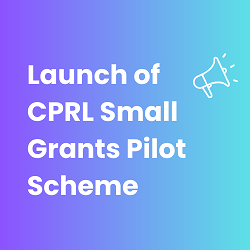You are here
- Home
- Learning
- Free Learning
- Community Engagement and Leadership (PSNI)
Community Engagement and Leadership (PSNI)

These free resources are organised into categories aligned to the College of Policing Curriculum and in agreement with police experts. You can study them at any time and anywhere.
Learn to develop leadership and communication skills that will be useful for policing in community settings. Recognise the importance of, and improve your ability at communication, collaboration and leadership with free courses from OpenLearn, endorsed by Google.
Effective policing in community settings requires a varied and adaptable skill set. The ability to step up to leadership, to utilise effective skills of communication and to engage with various communities are all areas of vital importance for the challenging area of community policing. Everyone can benefit from some focused training and development to help them realise their full potential.
Select the duration of study below and you will be taken to resources that match that duration or view them all here.
| 1-7 Hours of study | More than 7 hours of study |
|---|
1-7 Hours of study
Empowering communities
This course discusses the most common forms of community empowerment, and explores the barriers to community empowerment and ways that these can be overcome. It will conclude by looking at crime and criminality: a particular challenge that can arise if communities are not sufficiently empowered and supported.
Type of activity: Course
Engaging with children and young people
This course explores how police engage with children and young people and how this can be approached differently.
Type of activity: Course
Exploring evidence-based policing
This course examines the basic elements of evidence-based policing and gives insight into how more evidence-based approaches can inform better policing practice.
Type of activity: Course
Justice, fairness and mediation
This course considers the concepts of justice and fairness from various perspectives but mainly focuses on effective policing and community empowerment.
Type of activity: Course
Step up to leadership
This course is one in a series focusing on leadership, decision-making and communication in the context of policing with the community. This particular course focuses on the challenge of leadership and leading change in an ever-changing policing context. It provides insights to help individuals become more effective leaders of teams and organisations, and to engage more effectively with key community stakeholders.
Type of activity: Course
Sure, I know how to talk to people!
This course is one in a series focusing on leadership, decision-making and communication in the context of policing with the community. This particular session focuses on communication skills and specifically looks at how to build rapport and get the most out of conversations in community settings. It introduces a psychological model which is a useful way to think about how to develop rapport, and allows you to plan for, and reflect on, your everyday interactions in order to build rapport effectively. It focuses on conversations that might be considered ‘difficult’, and encourages effective listening and effective diagnosis of interpersonal behaviour.
Type of activity: Course
More than 7 hours of study
Collaborative problem solving for community safety
This course offers a range of techniques for community police officers, other community-based public service professionals and members of community groups working to solve problems collaboratively and creatively. It examines some of the ways which OU specialists in creative problem solving recommend to tackle difficult problems, and how to implement them in a community setting.
Type of activity: Course
News
- New course launched on “Understanding PCSO powers” 14th March 2024
- CPRL Collaborative dates for your diary 28th February 2024
- Government backs new pet abduction law in pet theft crackdown 8th February 2024
Upcoming Events
Online Seminar: Trust and confidence in policing
Wednesday, May 22, 2024 - 13:00 to 14:30
Online Membership Group Meeting
Thursday, June 13, 2024 - 10:30 to 12:30
